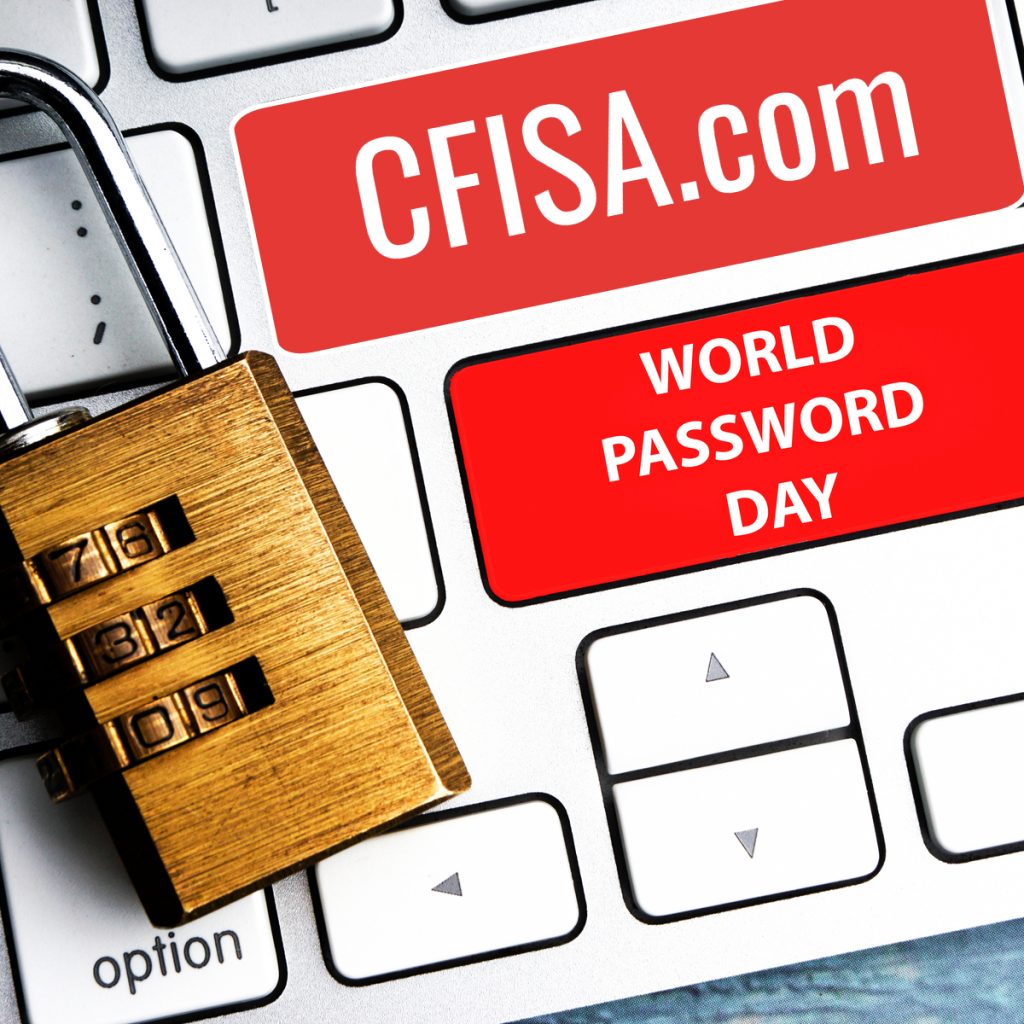
Did you know that May 7th, 2020 is World Password Day? Who knew there was such a day?
Well, this is a perfect time to update and review old out of date passwords!
With the Covid-19 crisis most of us are working from home, so why not?
What else do you have to do?
In the future, passwords should go away and be replaced with your fingerprint or facial recognition but for now your passwords are the keys to everything you do online. It is vitally important to develop strong password practices. When you create and use simple and predictable passwords you are leaving your account doors wide open to be compromised.
Avoid using dictionary words as your passwords
There are various recommendations regarding password security that you should consider. Many security experts recommend avoiding the use of words that are found in a dictionary by simply putting a number or character in the middle of the word.
One example of this would be to pick some letters in the word and replace one or more letters in the word with a number and add some special characters. You just need to get creative and pick changes that you can remember and are memorable to you.
Use a passphrase that is memorable
In most cases, you should implement a passphrase to lock your “cyber doors”. A passphrase is a short phrase that you will find easy to remember but would be almost impossible for an intruder to predict.
Once you have such a phrase, you can then easily create a complex but memorable password simply by using the first character or letter in each word of the phrase.
There are different ways to develop a passphrase. For example, the sentence “I wish my sister Jodi was here 2!” Could create a nine-character password, IwmsJwh2! that contains uppercase letters, lowercase letters, numbers, and symbols. Just select the first letter or number in each word and include a couple of uppercase letters.
Get creative with passphrases that are easy to remember but hard for a hacker to predict.
Another example of a passphrase would be something like: ILuvW0rking@myC0mpany2. The longer the passphrase the more difficult to hack.
Two-Factor Authentication and Strong Passwords
Many organizations and websites including financial institutions and banks are now offering the use of “two-factor” authentication also known as 2FA and “multi-factor” authentication.
Two-factor authentication involves logging into your account with two or more pieces of information. This would include “something you have” like a PIN number that is sent as a text message to your phone and with “something you know” like your password. Authenticator applications are also available that can also add an increased layer of security to your accounts.
You should always use two-factor authentication whenever it is offered, especially on all financial accounts.
Password Managers
Password managers are applications or software that are designed to create and keep track of all your passwords. For the average user, this is a great way to create and manage your passwords.
When you need a new password the password manager will create a long complex password for you and remember it for you in the application. The password managers are embedded into your device and will integrate with your browser to automatically fill in the new complex password on all the websites you use.
With password managers, you do not need to remember your passwords and the app does it for you. Some of the top password manager apps are LastPass, #1Password, and Dashlane. Check them out in your app store or on their online website.
About the Center for Information Security Awareness (CFISA) –
The Center for Information Security Awareness was formed in 2007 by a group of leading academics, security experts, and fraud experts to explore ways to increase security awareness among consumers, employees, businesses, and law enforcement.
CFISA Offers:
- Online security awareness training
- On-site security awareness training
- HIPAA compliance courses
- PCI credit card compliance courses
CFISA currently has a diverse blend of customers using their valuable training, including:
- Small, medium and large businesses
- Federal, state and local government agencies
- Colleges and universities
- Financial institutions
Learn more about all of our security training offerings at https://www.cfisa.com/training.
